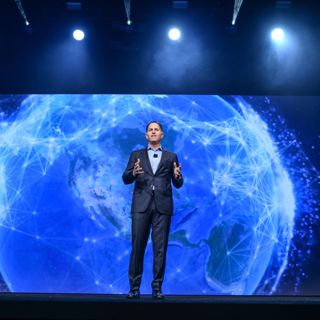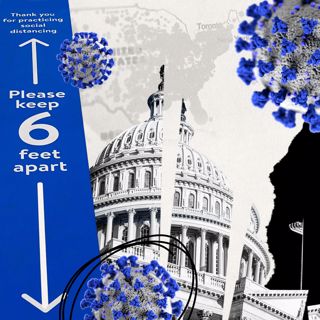
Kickstarting Network Effects
What are network effects? [1:32]How do you cold start and get your first users? [2:33]Atomic networks and why minimum viable community is more important than minimum viable product [6:36]How do you curate your network and set norms? [8:42]Faking users: good idea, bad idea? [13:13]What is flintstoning? [14:26]How does the relationship to creators change as you scale? [17:07]Building for the professional creator class [22:52]How is web3 changing incentives? [25:12] Stay Updated:Find a16z on XFind a16z on LinkedInListen to the a16z Podcast on SpotifyListen to the a16z Podcast on Apple PodcastsFollow our host: https://twitter.com/eriktorenberg Please note that the content here is for informational purposes only; should NOT be taken as legal, business, tax, or investment advice or be used to evaluate any investment or security; and is not directed at any investors or potential investors in any a16z fund. a16z and its affiliates may maintain investments in the companies discussed. For more details please see a16z.com/disclosures. Hosted by Simplecast, an AdsWizz company. See pcm.adswizz.com for information about our collection and use of personal data for advertising.
6 Dec 202131min

NFTs, Explained
Given all the activity and interest recently around crypto and web3, as well as in upcoming holidays and art events, we’re re-running our episode all about NFTs (from March 2021) -- where we covered everything you need or want to know about NFTs. You can also find a curated list of resources to learn all about NFTs at future.com/nftcanon. That list, and this episode, has something for everyone -- from artists and creators and other builders to big companies and institutions or just anyone seeking to understand or even explain to others NFTs.Here, we’ve cut through the noise around NFTs to share the signal, covering everything from: what NFTs are and the underlying crypto big picture, before we dig into specifically what forms they take;common myths and misconceptions -- from confusing overlaps with other concepts to addressing commentary like it’s “just a JPG” or that it’s just hypeto the question of energy use, also covering briefly how NFTs workproviding a quick overview of the players/ ecosystemand throughout, covering various applications too.Joining host Sonal Chokshi are Jesse Walden, now of Variant Fund, and formerly co-founder of Mediachain Labs, which was acquired by Spotify; and Linda Xie, now of Scalar Capital, and formerly an early product manager at Coinbase. As a reminder, NONE of the following should be taken as investment advice, for more important information please see a16z.com/disclosures.[If you’re also interested in DAOs (which we touch on briefly in this episode), we just recently published a list of readings -- in the vein of our famous crypto canon resource, then NFT canon, and now DAO canon -- all about DAOs. It’s for anyone seeking to understand, build, and otherwise get involved with these “decentralized autonomous organizations” -- which represent the future of community, coordination, work, and much more… so we’ve curated resources on this list for people at different levels of interest, from dipping one’s toes in to going deep. You can find that at future.com/daocanon.]This episode was originally released in March 2021: https://future.a16z.com/podcasts/nfts-explainer/ Stay Updated:Find a16z on XFind a16z on LinkedInListen to the a16z Podcast on SpotifyListen to the a16z Podcast on Apple PodcastsFollow our host: https://twitter.com/eriktorenberg Please note that the content here is for informational purposes only; should NOT be taken as legal, business, tax, or investment advice or be used to evaluate any investment or security; and is not directed at any investors or potential investors in any a16z fund. a16z and its affiliates may maintain investments in the companies discussed. For more details please see a16z.com/disclosures. Hosted by Simplecast, an AdsWizz company. See pcm.adswizz.com for information about our collection and use of personal data for advertising.
25 Nov 202156min

Play-to-Earn Gaming and How Work is Evolving in Web3
In today's episode we’re talking about an emerging model of gaming called play to earn, in which players can make actual money based on how much time and effort they put into a game. Play to earn is also part of broader trends — the changing relationship between players and platforms, new incentives for participants in blockchain-based networks, and the new internet era that is coming to be known as a web3. The top play-to-earn game is called Axie Infinity, operated by a Vietnam-based company called Sky Mavis. Players of the game acquire unique digital pets called Axies, and battle other teams of Axies. These NFT Axies can be created and sold using the game’s in-game currency, SLP, which can be traded for traditional currency. Think of it as Pokemon on the blockchain, with a social network built-in, and an actual economy, and even companies built around the game that help players onboard and loan them money to get started playing. The game has made more than $3 billion in total sales since launching in March 2018, with much of its early growth in the Philippines. (As a reminder, none of the following should be taken as investment advice, please see a16z.com/disclosures for more important information.) Our guests today are Jeff Zirlin, the cofounder of Sky Mavis; Gabby Dizon, the cofounder of Yield Guild Games, a play to earn gaming guild that gives players the resources to start playing; and a16z crypto general partner Arianna Simpson. They talk to a16z's Zoran Basich about the tech trends that enabled the emergence of play to earn, why and where it caught on first, and the role of community, as well as the challenges, which include onboarding and scalability, and the economic sustainability of this model. The panel also discusses what the play-to-earn movement say about the future of work. Stay Updated: Find a16z on X Find a16z on LinkedIn Listen to the a16z Podcast on Spotify Listen to the a16z Podcast on Apple Podcasts Follow our host: https://twitter.com/eriktorenberg Please note that the content here is for informational purposes only; should NOT be taken as legal, business, tax, or investment advice or be used to evaluate any investment or security; and is not directed at any investors or potential investors in any a16z fund. a16z and its affiliates may maintain investments in the companies discussed. For more details please see a16z.com/disclosures. Hosted by Simplecast, an AdsWizz company. See https://pcm.adswizz.com for information about our collection and use of personal data for advertising.
11 Nov 202123min

On container ships, supply chains, and the physical world
"Beyond the Meme: Ever Given, Supply Chains, and the Physical World" -- by Ryan Petersen (June 2021). Bio + essay details/ originally appeared at: https://future.a16z.com/beyond-the-meme-ever-given-supply-chains-and-the-physical-world/More read-alouds at: https://a16z.com/tag/read-alouds/ Stay Updated:Find a16z on XFind a16z on LinkedInListen to the a16z Podcast on SpotifyListen to the a16z Podcast on Apple PodcastsFollow our host: https://twitter.com/eriktorenberg Please note that the content here is for informational purposes only; should NOT be taken as legal, business, tax, or investment advice or be used to evaluate any investment or security; and is not directed at any investors or potential investors in any a16z fund. a16z and its affiliates may maintain investments in the companies discussed. For more details please see a16z.com/disclosures. Hosted by Simplecast, an AdsWizz company. See pcm.adswizz.com for information about our collection and use of personal data for advertising.
2 Nov 202116min

Crypto Security and the New Web3 Mindsets for Users
Today’s episode is all about crypto security — that is, the new mindsets and the new strategies for storing crypto assets safely while also allowing holders control and access. As a reminder, none of the following should be taken as investment advice, please see a16z.com/disclosures for more important information. We’ve covered security trends more broadly a ton in our content, which you can find at a16z.com/security, as well as crypto-related trends including NFTs, and the creator and ownership economies; you can find all of that at a16z.com/nfts But as more people enter crypto lately — thanks to the boom in NFTs, decentralized finance, and much more — we share specific best practices and options for securing crypto as well as discussing how it all fits this next evolution of the internet: web3. Our expert today is a16z crypto data scientist Eddy Lazzarin, who joins host Zoran Basich to cover practical approaches ranging from passwords to crypto wallets and what users can do; the evolution of crypto briefly; and the big picture mindset shifts involved here as well. We quickly begin with the practical shift crypto security represents compared to how people interact with traditional financial institutions, and then we go into the big picture trends in security when it comes to abstraction and usability. Stay Updated: Find a16z on X Find a16z on LinkedIn Listen to the a16z Podcast on Spotify Listen to the a16z Podcast on Apple Podcasts Follow our host: https://twitter.com/eriktorenberg Please note that the content here is for informational purposes only; should NOT be taken as legal, business, tax, or investment advice or be used to evaluate any investment or security; and is not directed at any investors or potential investors in any a16z fund. a16z and its affiliates may maintain investments in the companies discussed. For more details please see a16z.com/disclosures. Hosted by Simplecast, an AdsWizz company. See https://pcm.adswizz.com for information about our collection and use of personal data for advertising.
15 Okt 202131min

Cloud Wars and Company Wars: Play Nice But Win
There are lots of challenges in being public while trying to innovate, and limits to being a private company as well; but it's rare to see a company go public then private then back to public again. As is the case with Dell Technologies, one of the largest tech companies -- which went private 2012-2013 and then also pulled off one of the most epic mergers of all time with Dell + EMC + VMWare 2015-2016 (and which we wrote about here at the time).Is there a method to the madness? How does one not just start, but keep, and transform, their company and business? Especially as it adapts to broader, underlying tech platform shifts. Michael Dell shares all this in his upcoming new book, Play Nice to Win: A CEO's Journey from Founder to Leader... he also, tellingly, may be one of the longest-standing founder-CEOs (37 years so far).Because this is really a story about innovation, who decides, who judges, who does it, and where: In the markets, in public, in private; in the both the big picture and the inner detailed workings of a business beyond "cells in a spreadsheet"; and even in fighting -- or harnessing! -- narratives, whether it's the demise-of-PC or cloud wars 1.0 /2.0... And where trends like the cost paradox of cloud, and "end of cloud" edge computing, among others like AI & ML, also come in. In this special book-launch episode of the a16z Podcast with Marc Andreessen, Martin Casado, and Sonal Chokshi debate the Cloud Wars to the Company Wars (along with some behind-scenes stories and even some star wars) with Michael Dell... and whether you can really play nice to win. image: Dell EMC World 2016/ © Dell Inc. The views expressed here are those of the individual AH Capital Management, L.L.C. (“a16z”) personnel quoted and are not the views of a16z or its affiliates. Certain information contained in here has been obtained from third-party sources, including from portfolio companies of funds managed by a16z. While taken from sources believed to be reliable, a16z has not independently verified such information and makes no representations about the enduring accuracy of the information or its appropriateness for a given situation.This content is provided for informational purposes only, and should not be relied upon as legal, business, investment, or tax advice. You should consult your own advisers as to those matters. References to any securities or digital assets are for illustrative purposes only, and do not constitute an investment recommendation or offer to provide investment advisory services. Furthermore, this content is not directed at nor intended for use by any investors or prospective investors, and may not under any circumstances be relied upon when making a decision to invest in any fund managed by a16z. (An offering to invest in an a16z fund will be made only by the private placement memorandum, subscription agreement, and other relevant documentation of any such fund and should be read in their entirety.) Any investments or portfolio companies mentioned, referred to, or described are not representative of all investments in vehicles managed by a16z, and there can be no assurance that the investments will be profitable or that other investments made in the future will have similar characteristics or results. A list of investments made by funds managed by Andreessen Horowitz (excluding investments for which the issuer has not provided permission for a16z to disclose publicly as well as unannounced investments in publicly traded digital assets) is available at https://a16z.com/investments/.Charts and graphs provided within are for informational purposes solely and should not be relied upon when making any investment decision. Past performance is not indicative of future results. The content speaks only as of the date indicated. Any projections, estimates, forecasts, targets, prospects, and/or opinions expressed in these materials are subject to change without notice and may differ or be contrary to opinions expressed by others. Please see https://a16z.com/disclosures for additional important information. Stay Updated:Find a16z on XFind a16z on LinkedInListen to the a16z Podcast on SpotifyListen to the a16z Podcast on Apple PodcastsFollow our host: https://twitter.com/eriktorenberg Please note that the content here is for informational purposes only; should NOT be taken as legal, business, tax, or investment advice or be used to evaluate any investment or security; and is not directed at any investors or potential investors in any a16z fund. a16z and its affiliates may maintain investments in the companies discussed. For more details please see a16z.com/disclosures. Hosted by Simplecast, an AdsWizz company. See pcm.adswizz.com for information about our collection and use of personal data for advertising.
2 Okt 202152min

Uncontrolled Spread: Science, Policy, Institutions, Infrastructure
There's no question technology played a huge role in the recent/current pandemic, including especially in the plug-and-play engineering and incredibly fast development behind the mRNA vaccines... But is there an even bigger role for the private sector, not just government, to play (and partner) when it comes to key infrastructure for future such emergencies, and even beyond?Especially given how faulty the translation of institutional science to policy and public health measures turned out to be -- for instance, with "6 feet" of social distancing, or with fomite (vs. aerosol) transmission of COVID. And why are we still talking about the same, not specific, vaccine booster for the Delta variant? What can we learn about real-world evidence, other clinical trial approaches, and progressive (vs. binary) EUA approvals when it comes to public health emergencies? Are capabilities like genomic surveillance and mapping strains -- which require layers of technology, real time -- sitting in the right places?In this special book-launch episode of the a16z Podcast, former FDA commissioner Dr. Scott Gottlieb -- author of the upcoming new book, Uncontrolled Spread: Why COVID-19 Crushed Us, and How We Can Defeat the Next Pandemic -- shares insights on the above, and revealing stories from behind the scenes. Do we need a new entity to manage public health through a national security lens, and is the government capable? Gottlieb debates this and other probing questions from a16z co-founder Marc Andreessen (who famously wrote "It's time to build"); a16z bio general partner Vineeta Agarwala MD, Phd (who has spoken about the trials of clinical trials, practiced medicine during the pandemic, and more); and founding a16z bio general partner Vijay Pande PhD (who, among other things, founded the distributed computing project Folding@Home which pivoted to COVID proteins).One thing's for sure -- with this COVID crisis, we're at an inflection point between old and new technology -- whether it's in how we make vaccines, or how we apply the fields of synthetic biology and genetic epidemiology in public health response. So now's the time to look both backward, and forward, to really change things... Stay Updated:Find a16z on XFind a16z on LinkedInListen to the a16z Podcast on SpotifyListen to the a16z Podcast on Apple PodcastsFollow our host: https://twitter.com/eriktorenberg Please note that the content here is for informational purposes only; should NOT be taken as legal, business, tax, or investment advice or be used to evaluate any investment or security; and is not directed at any investors or potential investors in any a16z fund. a16z and its affiliates may maintain investments in the companies discussed. For more details please see a16z.com/disclosures. Hosted by Simplecast, an AdsWizz company. See pcm.adswizz.com for information about our collection and use of personal data for advertising.
20 Sep 202156min

Systems Leadership for Disruptors and Incumbents
There's been a false dichotomy in technology and management lore over the past decade, between "brain" and "brawn", digital and physical, independence and interdependence, software culture versus industrial culture… or so observes Stanford Graduate School of Business lecturer, former big-company executive, and startup founder Robert Siegel in his new book, The Brains and Brawn Company: How leading organizations blend the best of digital and physical.Whether you're an early startup or a Fortune 500 company, we live in an increasingly complex world -- which means embracing digitization is not enough. But logistics, supply chains, and infrastructure are messy, ugly, and hard. So today's leaders have to think completely differently, in terms of ecosystems; and they're often in the position of having to influence but not have control. So when and how do they assert power in an ecosystem? When do they try to shape it? When do they sit back? What to do if their channel partner suddenly changes? When do you want to stay frenemies and when do you wanna be enemies? These are just some of the hard questions companies today have to wrestle with... All boiling down to when and where to partner, when to go it alone?So in this hallway-style discussion among Siegel and fellow Stanford b-school lecturers Jeffrey Immelt (former CEO of GE) and a16z general partner Jeff Jordan -- in conversation with host Sonal Chokshi -- the group wrestles with these questions, spinning through several different company examples such as Instacart and Stripe to Apple and Android/Google to Disney, Peloton, and others. But we talk too much about the outliers; we need to also talk more about the tools, and mindsets, that leaders of all kinds -- not just the once-in-a-generation leaders! -- can use. After all, argues Siegel, "Incumbents are not doomed and disruptors are not ordained." The views expressed here are those of the AH Capital Management, L.L.C. (“a16z”) personnel quoted and are not the views of a16z or its affiliates. Certain information contained in here has been obtained from third-party sources, including from portfolio companies of funds managed by a16z. While taken from sources believed to be reliable, a16z has not independently verified such information and makes no representations about the enduring accuracy of the information or its appropriateness for a given situation. In addition, this content may include third-party advertisements; a16z has not reviewed such advertisements and does not endorse any advertising content contained therein.This content is provided for informational purposes only, and should not be relied upon as legal, business, investment, or tax advice. You should consult your own advisers as to those matters. References to any securities or digital assets are for illustrative purposes only, and do not constitute an investment recommendation or offer to provide investment advisory services. Furthermore, this content is not directed at nor intended for use by any investors or prospective investors, and may not under any circumstances be relied upon when making a decision to invest in any fund managed by a16z. (An offering to invest in an a16z fund will be made only by the private placement memorandum, subscription agreement, and other relevant documentation of any such fund and should be read in their entirety.) Any investments or portfolio companies mentioned, referred to, or described are not representative of all investments in vehicles managed by a16z, and there can be no assurance that the investments will be profitable or that other investments made in the future will have similar characteristics or results. A list of investments made by funds managed by Andreessen Horowitz (excluding investments for which the issuer has not provided permission for a16z to disclose publicly as well as unannounced investments in publicly traded digital assets) is available at https://a16z.com/investments/.Charts and graphs provided within are for informational purposes solely and should not be relied upon when making any investment decision. Past performance is not indicative of future results. The content speaks only as of the date indicated. Any projections, estimates, forecasts, targets, prospects, and/or opinions expressed in these materials are subject to change without notice and may differ or be contrary to opinions expressed by others. Please see https://a16z.com/disclosures for additional important information. Stay Updated:Find a16z on XFind a16z on LinkedInListen to the a16z Podcast on SpotifyListen to the a16z Podcast on Apple PodcastsFollow our host: https://twitter.com/eriktorenberg Please note that the content here is for informational purposes only; should NOT be taken as legal, business, tax, or investment advice or be used to evaluate any investment or security; and is not directed at any investors or potential investors in any a16z fund. a16z and its affiliates may maintain investments in the companies discussed. For more details please see a16z.com/disclosures. Hosted by Simplecast, an AdsWizz company. See pcm.adswizz.com for information about our collection and use of personal data for advertising.
24 Juli 202148min





















